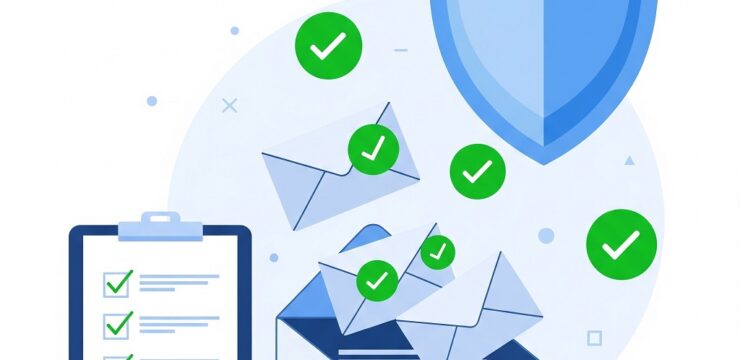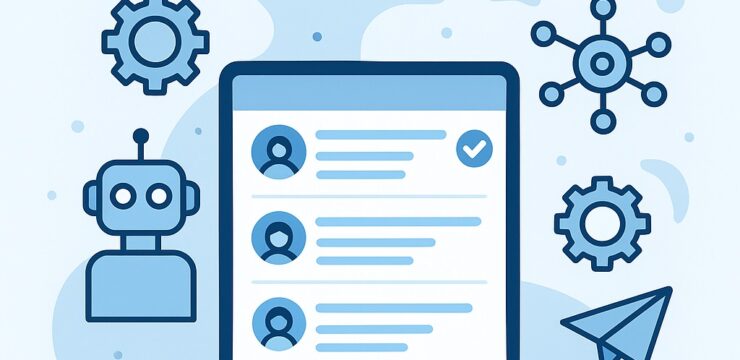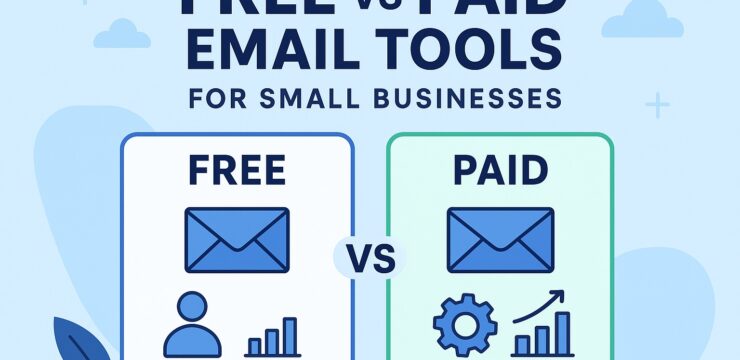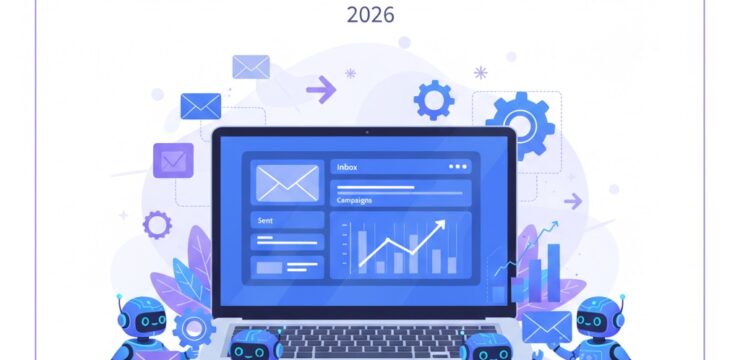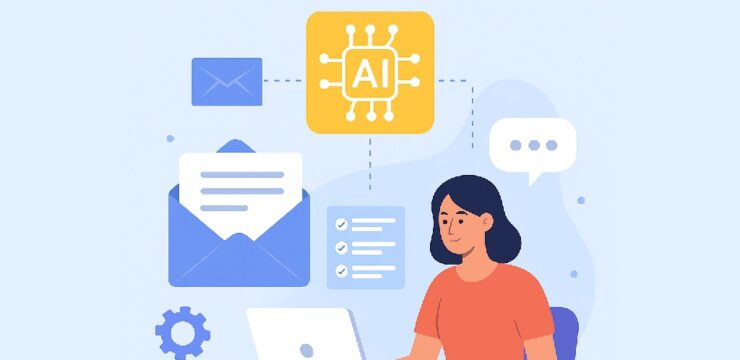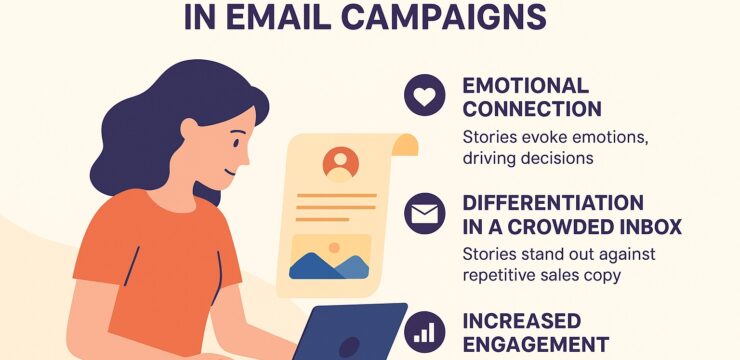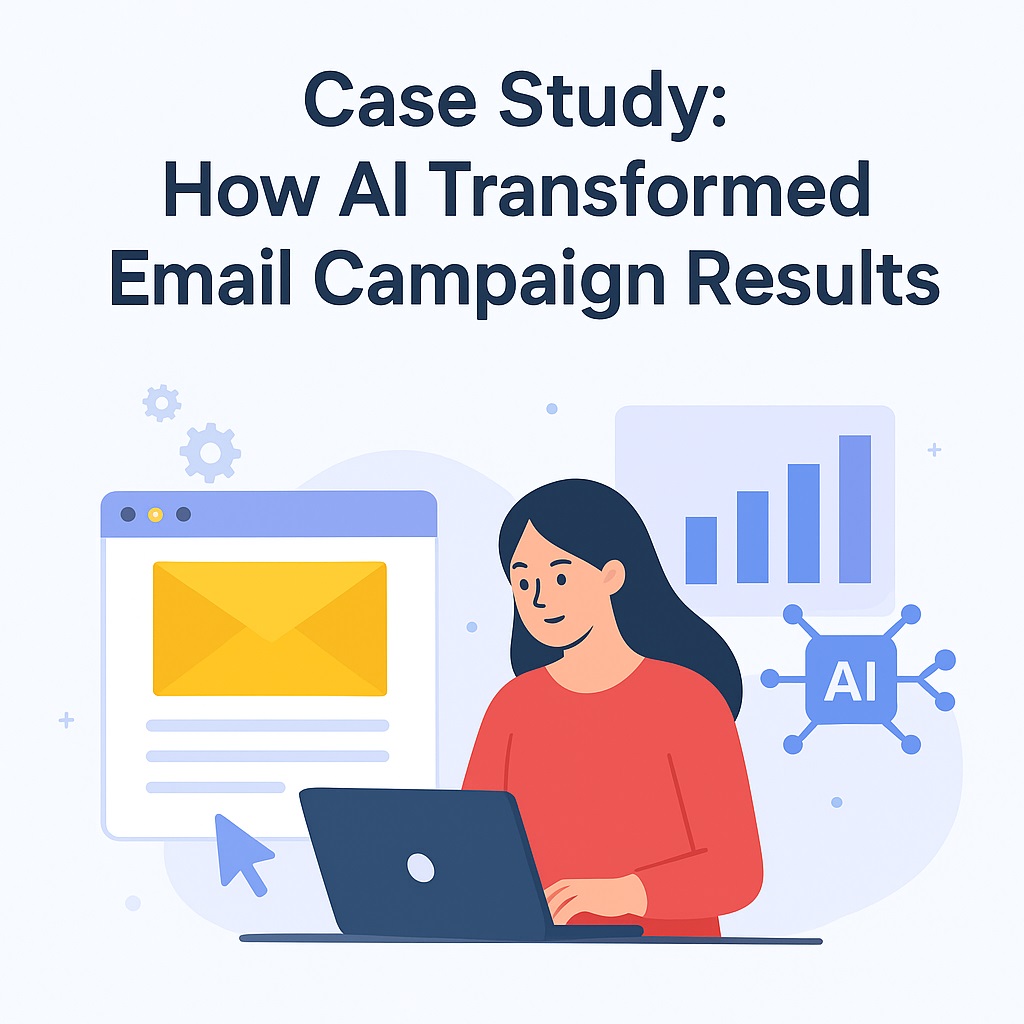
Email marketing has always been one of the most effective digital channels, but in recent years, artificial intelligence (AI) has transformed how businesses approach it. This case study explores how AI-driven tools and strategies significantly improved engagement, conversions, and customer satisfaction in email campaigns. By analyzing real-world examples, we will see how AI reshaped personalization, automation, content optimization, and performance tracking.
The State of Email Marketing Before AI
Before AI, most email campaigns were built on static lists and broad segmentation. Marketers often relied on generalized messaging sent to large groups of subscribers. While this approach produced results, it came with challenges:
- Low engagement rates: Generic subject lines and irrelevant offers often went unnoticed.
- High unsubscribe rates: Repeated irrelevant emails frustrated subscribers.
- Time-consuming processes: Marketers manually segmented audiences, created content, and scheduled campaigns.
- Limited insights: Reporting was basic, often restricted to open and click rates.
As competition for inbox attention increased, brands needed smarter, more adaptive solutions. This is where AI came into play.
Introducing AI into Email Campaigns
AI brought new levels of intelligence to email marketing by analyzing vast amounts of customer data, predicting behavior, and personalizing experiences at scale. In this case study, we’ll focus on four key areas where AI made the biggest impact:
- Advanced personalization
- Predictive analytics
- Automated content creation
- Smart send-time optimization
Case Study Background
The subject of this case study is a mid-sized e-commerce company specializing in lifestyle products. With over 500,000 subscribers, their email campaigns were critical to driving sales. However, they struggled with stagnant open rates (around 12%) and a below-average click-through rate (CTR) of 2.5%. Customer churn was also high, as many subscribers opted out after receiving irrelevant offers.
The company decided to integrate AI-powered email marketing tools to improve personalization, optimize timing, and create smarter campaigns.
Phase 1: Personalization at Scale
AI transformed personalization by going beyond simple first-name greetings. The platform analyzed user browsing behavior, past purchases, and engagement history to recommend highly relevant products.
For example, instead of sending the same newsletter to all subscribers, the system created dynamic email variations. A customer who browsed running shoes received recommendations on sneakers, while another who purchased skincare products received suggestions for complementary items. This level of personalization boosted relevance significantly.
Results: Open rates increased from 12% to 21% in just three months, and CTR nearly doubled to 4.8%.
Phase 2: Predictive Analytics
AI algorithms were used to predict which customers were most likely to convert, churn, or engage with specific products. By identifying these patterns, the company could proactively send targeted campaigns.
For instance, customers predicted to churn received retention-focused emails with loyalty discounts, while high-value customers received VIP offers and exclusive previews. This ensured that every message had a higher chance of resonating with the recipient.
Results: Customer retention improved by 18%, and conversions increased by 27% compared to the previous quarter.
Phase 3: Automated Content Creation
Creating fresh, engaging content for half a million subscribers was a challenge for the marketing team. AI tools solved this by generating product descriptions, subject lines, and even dynamic email layouts tailored to individual user interests.
For example, the AI platform tested multiple subject line variations in real-time and automatically sent the best-performing versions. Similarly, it auto-generated product copy optimized for engagement.
Results: The AI-driven subject line optimization boosted open rates by an additional 9%, while dynamic product descriptions increased conversion rates by 14%.
Phase 4: Send-Time Optimization
One of the most powerful features of AI in email campaigns is determining the best time to send messages. Instead of sending all emails at 9 a.m., the system analyzed each subscriber’s past behavior and sent messages at their individual peak engagement times.
Some users opened emails late at night, while others engaged more during lunch breaks. This level of timing precision ensured higher visibility in inboxes.
Results: Email open rates climbed further to 32%, and click-through rates reached 7.1%.
Overall Business Impact
After six months of using AI-driven campaigns, the company saw remarkable improvements:
- Revenue from email marketing grew by 41%.
- Unsubscribe rates dropped by 23%.
- Customer lifetime value (CLV) increased by 19%.
- Marketing team efficiency improved by 35%, as manual tasks were reduced.
These results demonstrated that AI not only enhanced campaign performance but also strengthened long-term customer relationships.
Key Lessons from the Case Study
From this company’s journey, several lessons stand out:
- Data is the foundation: AI thrives on accurate customer data, so investing in clean, well-structured databases is crucial.
- Personalization drives engagement: Tailored messages resonate far more than one-size-fits-all campaigns.
- Automation saves time: AI removes repetitive tasks, freeing marketers to focus on strategy and creativity.
- Optimization is continuous: AI constantly learns and adapts, meaning campaigns improve over time.
- Customer experience matters most: Beyond sales, AI ensures customers feel valued and understood.
Future Outlook: AI and Email Marketing
The success of this case study is just the beginning. As AI technology evolves, we can expect even more sophisticated capabilities in email marketing, such as:
- Emotion-based personalization: Emails tailored to a customer’s mood or sentiment in real-time.
- Voice and interactive emails: AI-driven campaigns that integrate with voice assistants or allow in-email shopping.
- Hyper-automation: AI systems that autonomously create, test, and optimize entire campaigns without human intervention.
For businesses, embracing AI early will mean staying ahead of the competition and delivering exceptional customer experiences.
Conclusion
This case study shows how AI can transform email campaign results by improving personalization, timing, and automation. With measurable boosts in engagement, revenue, and customer retention, the integration of AI into email marketing is no longer optional—it is essential. Companies that leverage AI effectively will not only see better performance metrics but also build stronger, lasting relationships with their customers.
